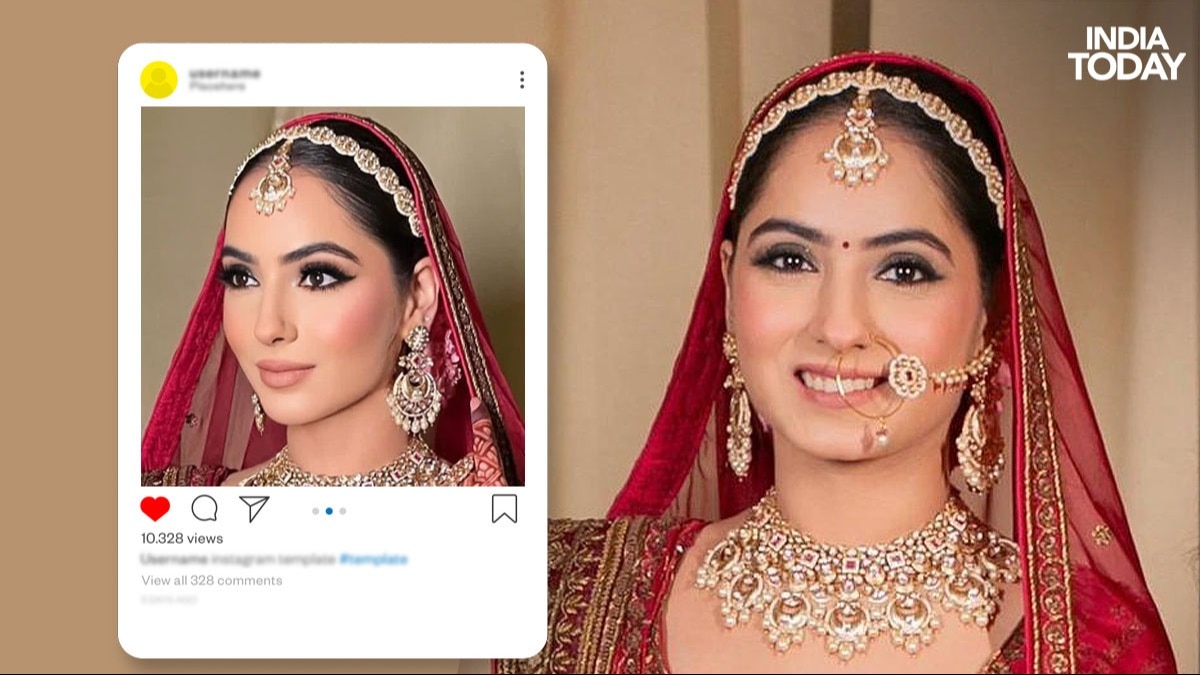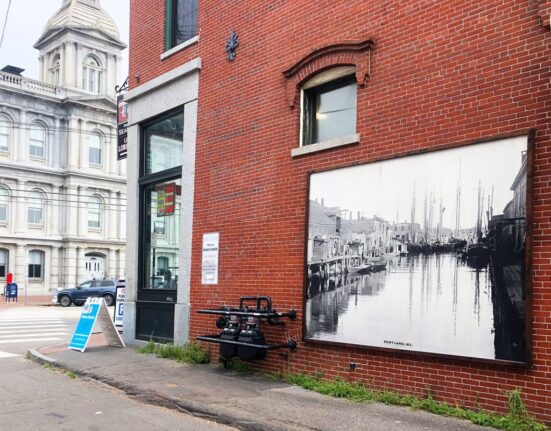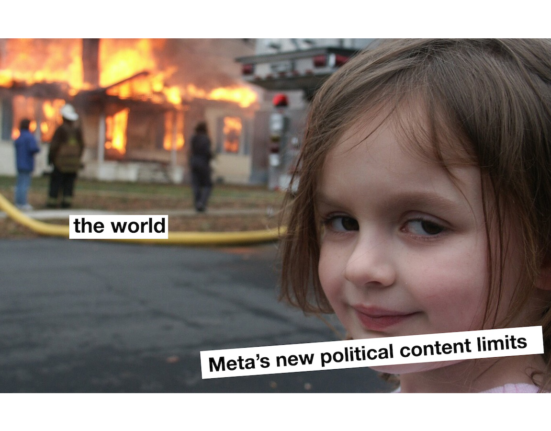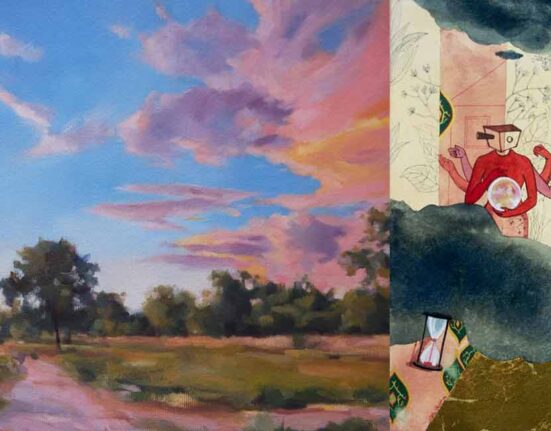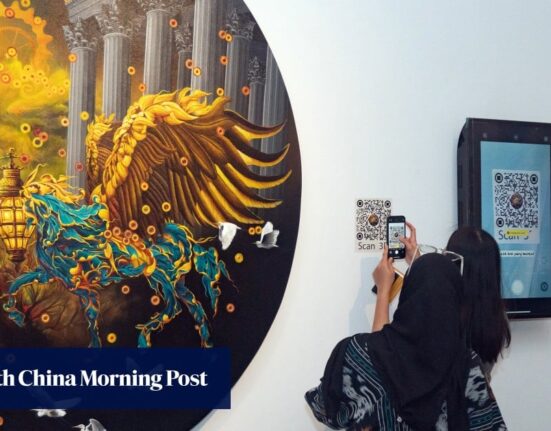When Charu Khanijau, a 29-year-old entrepreneur from Delhi, saw her bridal-look pictures shared on the Instagram profile of her wedding makeup artist, she was taken aback. She did not look like herself at all. In fact, she did not look like that even on her wedding day. FYI, she was extremely happy with how she looked as a bride on her big day.
However, the version that landed on her makeup artist’s Instagram profile was highly edited. Mind you, it was not just a filter that removes blemishes and instantly gives you a glass-like skin. But her overall facial features were heavily retouched – her eyes looked bigger, the lips were fuller and her jawline was much sharper.
She posted a Reel about it a few weeks back (without revealing the identity of MUA) that is not only crazy viral (7.8 million views so far) but has also exposed a scam of sort prevalent in the Indian wedding makeup industry.
A dirty secret exposed?
You see a makeup artist’s profile replete with photos and videos of gorgeous-looking brides dolled-up by them; wooed by their makeup artistry, you proceed to book them for your wedding. Turns out, their Instagram game was strikingly different from what their makeup skills look like IRL.
The comment section of the aforementioned viral Reel is full of similar stories by women who picked makeup artists for their wedding functions after seeing their work on Instagram.
“I also got tricked by looking at what these makeup artists are posting. My makeup was a disaster,” a newlywed wrote.
This trend of makeup artists posting highly-edited photos not only misleads their prospective clients but sets unrealistic beauty expectations. Many brides are left feeling disappointed and cheated on their big day.
However, many professionals refuse to give in to this trend just to create an attractive Instagram feed.
Industry insiders weigh in
Makeup artist Chandni Singh, founder of Chandni Singh Studio, Noida, who has been in the industry for almost two decades, says she is strictly against this practice.
“It is in the last 4 years that this trend of MUAs resorting to face-transforming apps has emerged. It is sad, but highly prevalent in the makeup industry. From beginners to seasoned artists, almost everyone is falling prey to this trend,” she tells India Today.
Ansh Bakshi, a Delhi-based makeup artist with an experience of over 8 years, further shares that a handful of professionals brought this trend of using face-altering apps into industry, and soon so many others jumped on it.
“It has plagued the industry. Not only is it unethical, but also snatching work from makeup artists who are good but don’t indulge in such practices,” Ansh says. He himself has been vocal on social media against this practice, and trying to make people more aware.
In an Instagram Reel posted in January this year, he depicted how MUAs end up giving a facelift to their muses using editing apps (these apps come with a subscription fee), which is otherwise not achievable with just makeup.
“Many people I know who do fabulous work have also begun to use particular editing apps out of industry pressure,” Ansh adds.
Professionals are also encouraging their students to use such apps in their makeup artists, industry insiders say.
“So many beginners are using face-editing apps as a ladder to quick success. Their social media profiles surely look pretty, but their work doesn’t match up,” says Ansh.
The ‘viral’ factor
The race to go viral and get more work is another factor driving this trend. According to Chandni Singh, a makeup artist gets approximately 60 percent of their clients from Instagram.
Instagram has proven to be a superb platform for these professionals and doubles up as their portfolio. The decision to take the help of facial-enhancement apps is hence often taken to make their feeds more visually appealing, to woo people with mesmerising makeup looks and make the work go viral.
However, the makeup artists are not the only ones fuelling the trend. Many brides alter their facial features using these apps and only then allow the wedding vendors to post their pictures on social media.
“Instagram has made a lot of us super conscious of how we want to be seen. The idea of perfection is being sold so much everywhere that certain brides themselves ‘facetune’ their pictures. The compliments they receive give them a high. Eventually, it is a personal choice. But when a bride sent me her retouched photos, I never shared those on my profile,” shares makeup artist Charmi Thakral, who has over 40k followers on Instagram.
Chandni also agrees.
“Many brides don’t have a problem when a makeup artist highly edits their pictures before sharing them on social media. They feel good about how stunning they look in those retouched pictures,” she says.
How to differentiate between what’s real and what’s not
While the line between right-wrong and ethical-unethical appears to be blurred here, one should ideally be aware enough to make a conscious decision.
Makeup artists agree that most of the brides-to-be are not aware of such practices. “They believe what they see. But you just can’t trust Instagram now,” says Ansh.
Until a few years back, it was suggested to not only fall for photographs (for, they can be highly edited) and pay attention to the videos posted on a makeup artist’s page. That, however, holds no value now. The innovative apps with advanced technology work equally well on videos.
Yet, there are certain things you can observe and do.
Primarily, read the reviews on Google and wedding planning portals. Apart from their work, it is also important to ensure the makeup artist is professional enough to provide you with a smooth experience on your big day.
“So many makeup artists, these days, throw tantrums, are not punctual with the timings, and often don’t show up without any notice and send their substitutes to the venue,” shares Chandni.
Seeing only ‘flawless’ faces on a makeup artist’s profile could hint that they share edited work.
“Not every bride that you hire is photogenic or falls under the so-called beauty standard that people fall for. If you see too much of ‘that’ perfection’ on a makeup artist’s page, that could be a red flag,” adds Charmi.
“Take makeup trials, if you can,” suggests Ansh.
“Those app-enhanced pictures and videos look a certain way. The facial features resemble somewhat like that of a Barbie, especially the eyes. They are wide and big. The lips look fuller and plump. The nose is mostly small and sharp. And jawlines are quite sharp. While there are many Indian brides who are naturally blessed with such features, but if you see that almost every other bride on a makeup artist’s page has these sorts of features, you can figure something is off,” says Chandni.
PS: Don’t fall for the captions where MUAs flaunt the ‘no filter’, ‘no editing’ tag. “So many makeup artists do that deliberately to fool people,” says Ansh.
What about the ethical line?
“In an ideal scenario, it all should be unedited. But you can’t really standardise it. I am even against the idea of putting before vs pictures. So many makeup artists, with such posts, tend to portray that they have turned an ugly duckling into a beautiful princess. That is again in such poor taste,” says Chandni.
Charmi, on the other hand, believes that a makeup artist should be allowed to enhance the lighting, fix the photograph’s frame and slightly smoothen the skin’s texture. “But that is it. Ethically speaking, changing someone’s features to make them fit into your idea of pretty, and consequently feeding unrealistic beauty standards, is sick. People should be more confident in their work and themselves,” she adds.
However, someone’s idea of wrong can be right for you. Being aware so that you are not deceived is eventually what matters. It is your big day, after all!

